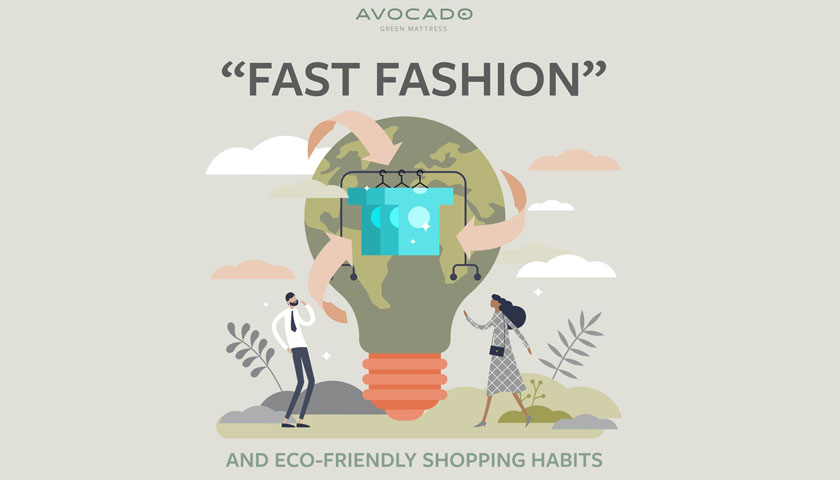Half of Americans believe fast fashion is going out of style, according to new research.
The survey of more than 2,500 Americans delved into the idea of “fast fashion” — clothing manufactured quickly and sold at a very low price point — and revealed 54% are opposed to it.
That’s once they learned what it was, as only 38% knew what fast fashion meant without being given a definition.
But even if they believe it’s unfashionable, it might be here to stay: results found six in 10 respondents believe social media is exacerbating the problem of fast fashion.
Conducted by OnePoll on behalf of Avocado Green Mattress, that might be due in part to a desire to not be an “outfit repeater.”
According to the survey, 48% prefer not to be photographed in the same outfit twice — and social media makes fashion choices more public than they might be otherwise.
The survey looked into fast fashion and the intersection between style and sustainability, as well as delving into respondents’ shopping habits.
Results revealed a surprising 46% believed they can’t be both stylish and eco-friendly, and 54% are more interested in affordability than quality when finding new pieces for their wardrobe.
And despite 69% of respondents expressing concern for environmental issues, only 44% said they “always” or “often” consider potential environmental impacts of their clothing purchases.
Forty-four percent of Americans surveyed admitted to throwing out perfectly good clothing, instead of taking it to a thrift store or giving it away.
And instead of going through the hassle of a return, 55% have chosen to donate their unworn clothes.
The survey found respondents are aware their actions aren’t very green: 62% admit fashion is one area in which they could be more environmentally friendly.
“In today’s world, it’s so easy to hit ‘add to cart’ without considering the true impact of our decisions — both on the people that are making these products as well as on the environment,” said Mark Abrials, co-founder and CMO of Avocado Mattress. “But once you decide to educate yourself and become more informed and aware, it actually makes these decisions much easier.”
Some respondents are making an effort to be green, though, and 26% of the average respondents’ wardrobe is made up of secondhand clothing.
Shopping at thrift stores isn’t the only step respondents are taking — 48% said they use old clothes as rags around the house, and 36% have used old clothes for art projects.
Additionally, a third (33%) said they shop local and 29% work to avoid fast fashion.
“Even small changes can add up to big results. And now, more than ever, companies are taking action to become more environmentally friendly — whether through the materials they use, or by reusing or donating products, rather than throwing them away,” said Abrials. “Breaking old habits can be difficult, but becoming a conscious consumer is better for our own health and the health of our planet.”
HOW ARE RESPONDENTS BEING ECO-FRIENDLY WITH THEIR CLOTHING?
- Use old clothes as rags around the house 48%
- Use old clothes for art projects, etc. 36%
- Buy clothing from local shops 33%
- Avoid fast fashion 29%
- Use “green” laundry detergent (no harsh chemicals) 29%
- Learn about environmentally-friendly fabrics 25%
- Buy faux leather, fur, etc. 25%
- Purchase vintage/secondhand 24%

